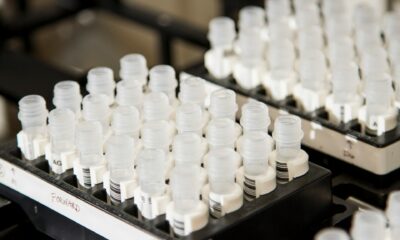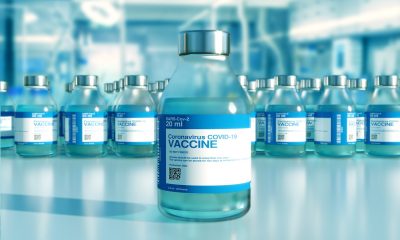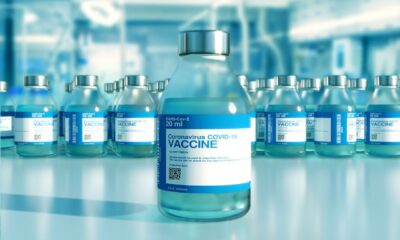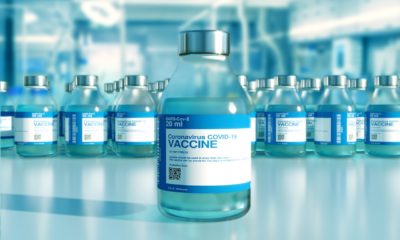Biotech
Phase 3 results of the Moderna vaccine: 86% efficacy in people over 65
The results of the clinical trials conducted by Moderna, showed that its COVID-19 vaccine candidate is very efficient. In the group age 18 -64, the efficacy was 94.1%, while in the group over 65, the vaccine’s efficacy was 86%. The trial has been developed in 99 centers in the US with more than 30,000 patients recruited and assigned, half to the vaccine and the other half to placebo at random.
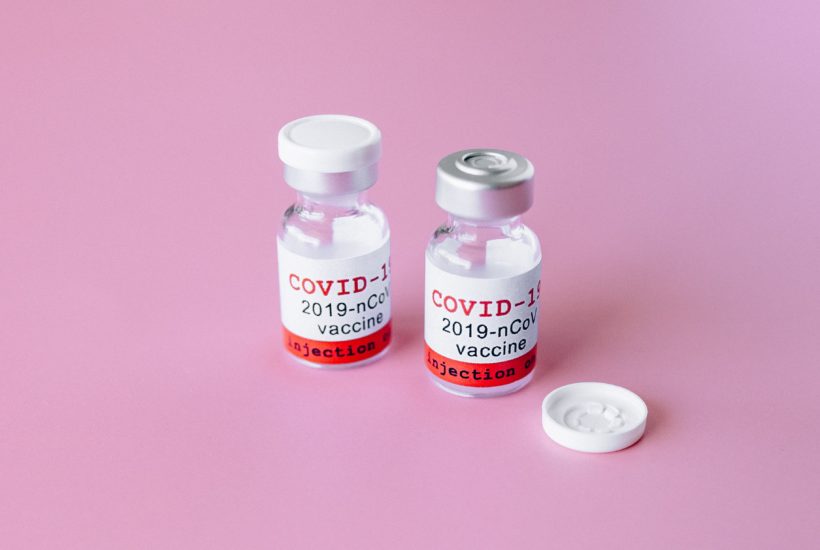
Moderna’s vaccine shows an efficacy of 94.1% in phase 3 of the trial in the cohort of volunteers between 18 and 64 years old, while in the group over 65 years old the efficacy drops to 86%.
Among the volunteers vaccinated with Moderna’s vaccine candidate, there have been no serious cases of COVID-19 and 11 infections have been reported, compared to 185 in the group that received the placebo. Of the latter, 30 people developed severe COVID-19, one of whom died. The trial indicates that more adverse effects have occurred after the second injection, although they were generally mild.
Read more details about Moderna’s COVID-19 vaccine candidate and find the latest business news in the world with the Born2Invest mobile app.
Among those vaccinated with Moderna’s candidate, 11 infections were recorded compared to 185 in the group that received the placebo
This has been communicated by the pharmacist and the National Institute of Allergy and Infectious Diseases (NIAID), in the article published this Wednesday in the New England Journal of Medicine with the results obtained so far in the phase 3 trial of their vaccine, the mRNA-1273, which has already received FDA authorization for its use in the United States. The EMA is expected to do so on January 6.
The study concluded that the vaccine is effective in preventing COVID-19 disease after the second dose of the vaccine in participants who had not previously been infected with SARS-CoV-2 and prevents the development of the serious disease.
The trial has been developed in 99 centers in the United States with more than 30,000 patients recruited and assigned, half to the vaccine and the other half to placebo at random. Of all of them, 96% eventually received both doses. As the researchers explain, the selection process of volunteers was adjusted in order to include a representative number of people from racial minorities and people who, because of their location or circumstances, were at risk of contracting the infection. In addition, up to 50% of the participants were considered to be at risk of serious illness and 24.8% were 65 years of age or older. All of them were randomly assigned to the vaccine or control group.
24.8% of trial participants are people over 65 years old
Both 100 μg doses of the mRNA-1273 vaccine or the placebo were injected between July 27 and October 23. 28 days after the first injection, they received the second dose. After the second injection, Covid-19 symptomatic disease was confirmed in 185 participants in the placebo group and in 11 participants in the mRNA-1273 group. Thus, they concluded that the vaccine’s efficacy was 94.1%.
Efficacy was similar in all key secondary analyses, including assessment 14 days after the first dose, analyses involving participants with evidence of SARS-CoV-2 infection at baseline, and analyses in participants aged 65 years or older. Severe Covid-19 occurred in 30 participants, with one death; all 30 were in the placebo group. Moderate transient reactogenicity after vaccination occurred most often in the mRNA-1273 group.
__
(Featured image by Nataliya Vaitkevich via Pexels)
DISCLAIMER: This article was written by a third party contributor and does not reflect the opinion of Born2Invest, its management, staff or its associates. Please review our disclaimer for more information.
This article may include forward-looking statements. These forward-looking statements generally are identified by the words “believe,” “project,” “estimate,” “become,” “plan,” “will,” and similar expressions. These forward-looking statements involve known and unknown risks as well as uncertainties, including those discussed in the following cautionary statements and elsewhere in this article and on this site. Although the Company may believe that its expectations are based on reasonable assumptions, the actual results that the Company may achieve may differ materially from any forward-looking statements, which reflect the opinions of the management of the Company only as of the date hereof. Additionally, please make sure to read these important disclosures.
First published in iSanidad, a third-party contributor translated and adapted the article from the original. In case of discrepancy, the original will prevail.
Although we made reasonable efforts to provide accurate translations, some parts may be incorrect. Born2Invest assumes no responsibility for errors, omissions or ambiguities in the translations provided on this website. Any person or entity relying on translated content does so at their own risk. Born2Invest is not responsible for losses caused by such reliance on the accuracy or reliability of translated information. If you wish to report an error or inaccuracy in the translation, we encourage you to contact us.

-

 Crowdfunding1 week ago
Crowdfunding1 week agoSpain’s Real Estate Crowdfunding Boom: Opportunity, Access, and Hidden Risks
-

 Fintech4 days ago
Fintech4 days agoDruo Doubles Processed Volume and Targets Global Expansion by 2026
-

 Impact Investing2 weeks ago
Impact Investing2 weeks agoIntesa Sanpaolo’s 2026–2029 Growth and ESG Strategy
-

 Business2 days ago
Business2 days agoTopRanked.io Weekly Affiliate Digest: What’s Hot in Affiliate Marketing [Health Trader Affiliate Program Review]
